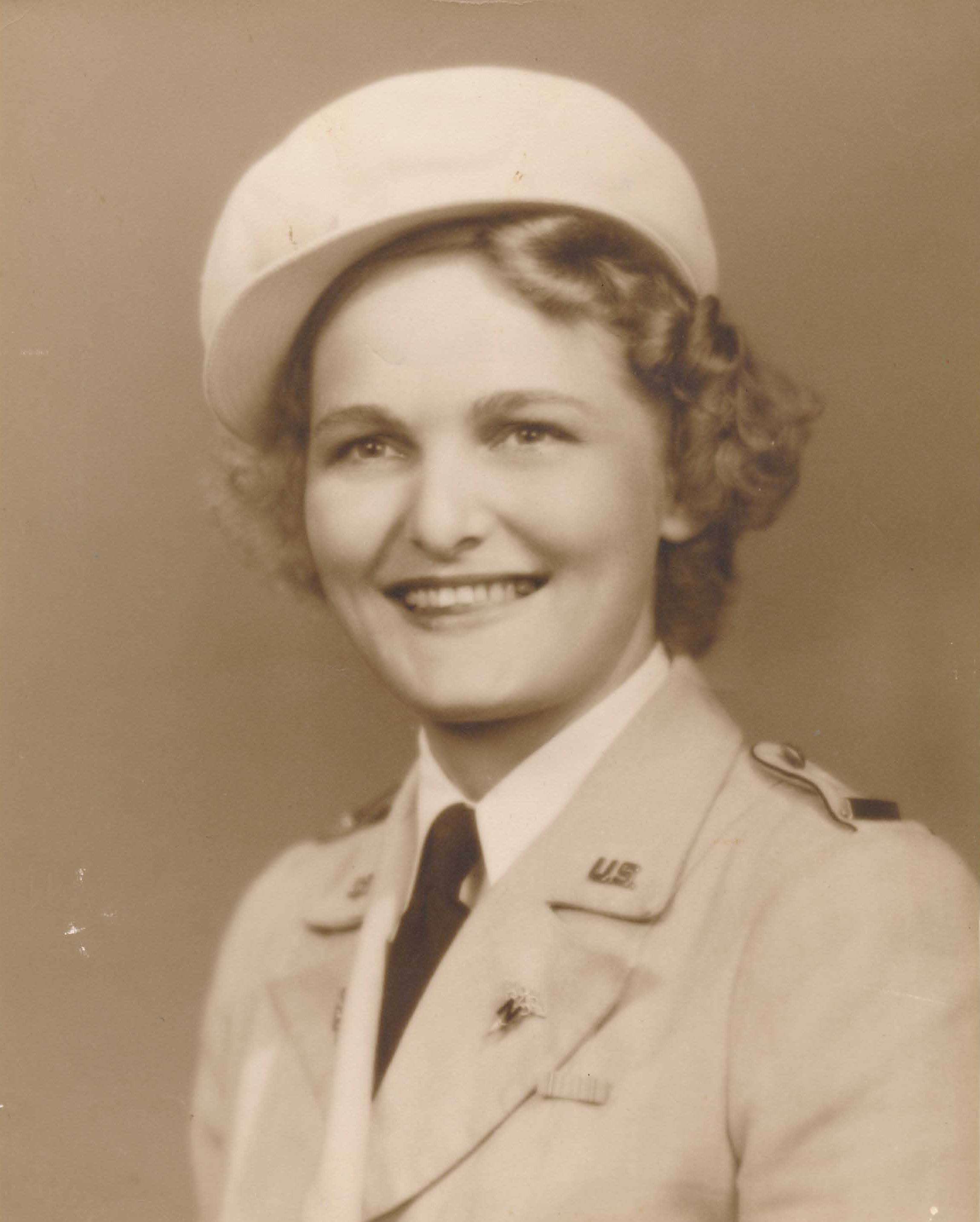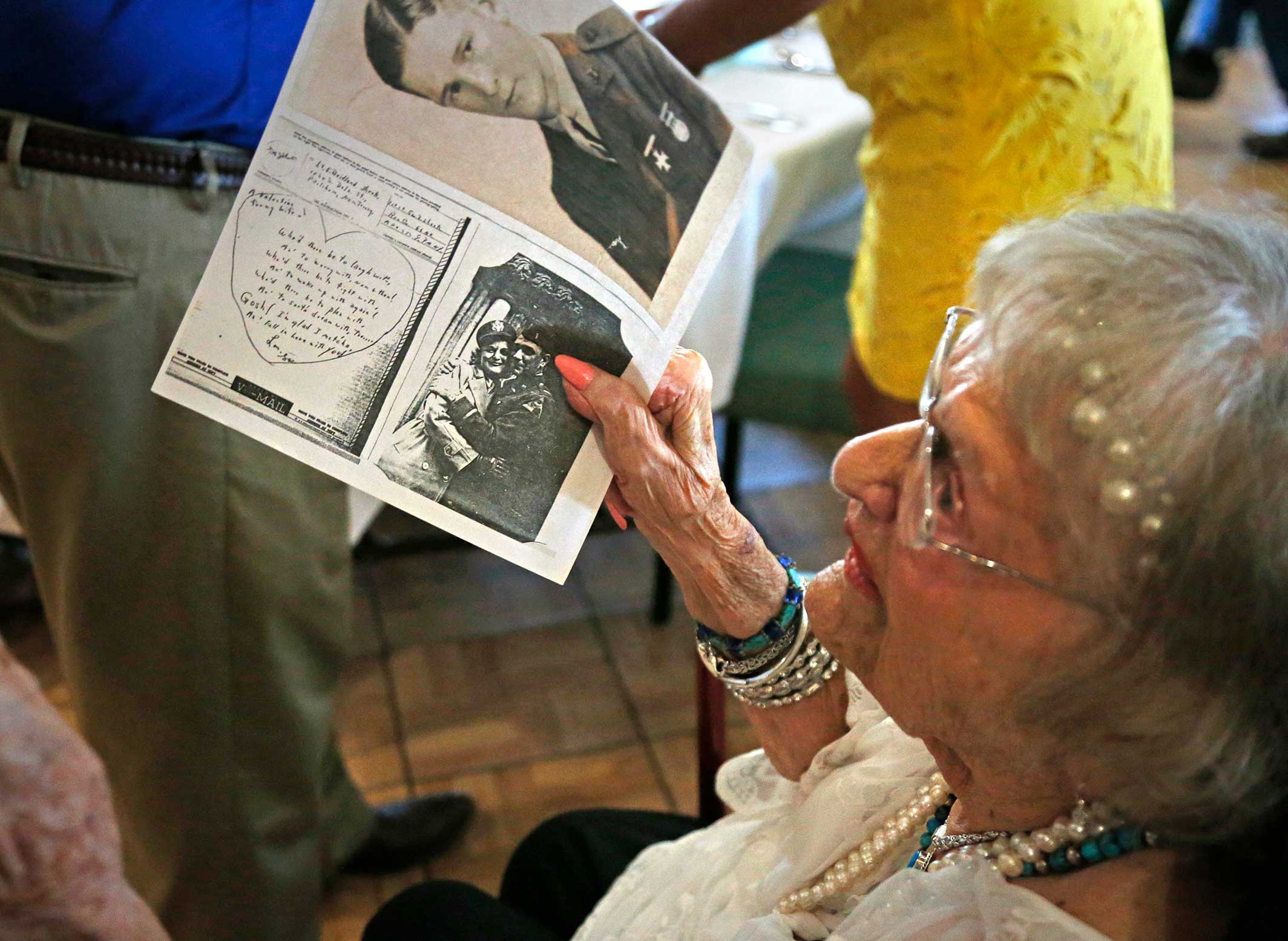Alumna and WWII nurse celebrated 100th birthday, reminisced about college days
Jacque Crouse | Aug 20, 2018

When Earlyne Reidland Sheets arrived at college as a bright-eyed freshman in 1937, she had no idea that war would divert her to another career and create a 48-year gap in her degree plan. She also had no idea that after earning her bachelor’s degree in 1985, she would continue to live a full life of nursing, being with her family and finally, celebrating her 100th birthday on June 4, 2018.
Just a year into her education at what is now Texas State University, Sheets decided she needed to enter nursing school to prepare for what looked like a troubled future as Nazis continued their meteoric rise in Europe. Since Texas State had no nursing college at the time, she headed for the program at Brackenridge Hospital in Austin.
Sheets graduated from nursing school in September 1941, and the Red Cross was there to recruit the graduating class into the Army Nurse Corps. She entered on duty on Sept. 10, 1941, planning to stay a year or so. On Dec. 7, 1941, she was taking temperatures at Brooke Army Hospital in San Antonio when one of the patients suddenly took off his earphones, thrust them at her saying, “Listen to this!” It was news of the bombing of Pearl Harbor.
By 1943, the young woman from Baytown, Texas, found herself aboard ship, zigzagging its way (to avoid German submarines) to a hospital in Chiselton, England. “You were young, you were not afraid,” she says, nodding and remembering the wild voyage. “We had a great time.” In England, she lived with five other nurses in a Nissen hut and worked in the 130th Station Hospital. There, the young nurse met 1st Lt. George Sheets, an officer attached to Gen. George Patton in North Africa. He had picked up a bad case of flu and ended up in the hospital. “I never thought I would marry him. He left and went back to the war, but I could tell he liked me,” she recalls. “You can just tell.” They eventually began a courtship that led to a wedding in St. Mary’s Church in Chiselton on June 5, 1944, a day after her 26th birthday and a day before D-Day.
By 1943, the young woman from Baytown, Texas, found herself aboard ship, zigzagging its way (to avoid German submarines) to a hospital in Chiselton, England. “You were young, you were not afraid,” she says, nodding and remembering the wild voyage.

On the way back to her unit in the early morning hours of June 6, she began to hear the airplanes and movement of troops. We knew then the invasion was on,” Sheets says, starting to cry even after all these years. “I’m sorry, I don’t think about this too often.” As she heard the rumble of the war machine on D-Day, her new husband was headed to Utah Beach, and would return later that summer to again be her patient. Sheets prides herself on knowing that they had 30,000 wounded soldiers come through her hospital during the time she was there, with only 12 deaths on their watch. One, however, was particularly hard for her as she sat all night long with a young man from Alabama. He talked the whole time about his wife and children, and how much he loved them and wanted to get back to them. He had been blown up, his kidneys were not going to work,” she says. “I knew he was going to die, but I couldn’t tell him that. I just sat with him and listened to his stories of his family, and how much he loved and missed them.”
After the war, Earlyne and her husband moved to San Antonio. She worked as a nurse at Brooke Army Medical Center (BAMC) first in the military, then in civil service. They raised a family and lived “some good times” in their lives. Sheets had always thought about going back to get her degree, and when Texas State began offering satellite courses at BAMC, she signed up and completed a degree in Health Administration in August 1985. It took me a year and a half,” she said. “They gave me credit for my nursing courses.”
She had loved her time as a teen freshman in San Marcos, and joined in many campus clubs and activities. At her recent birthday dinner, her son Mike told the story of the physical education course she flunked while in college. He said, “So, she failed physical education, and here she is 100 years old,” and everyone laughed,” Sheets says, chuckling herself. “But it was because I was supposed to write a paper, and I just didn’t do it. I got an Incomplete.”
Share this article
For more information, contact University Communications:Jayme Blaschke, 512-245-2555 Sandy Pantlik, 512-245-2922 |